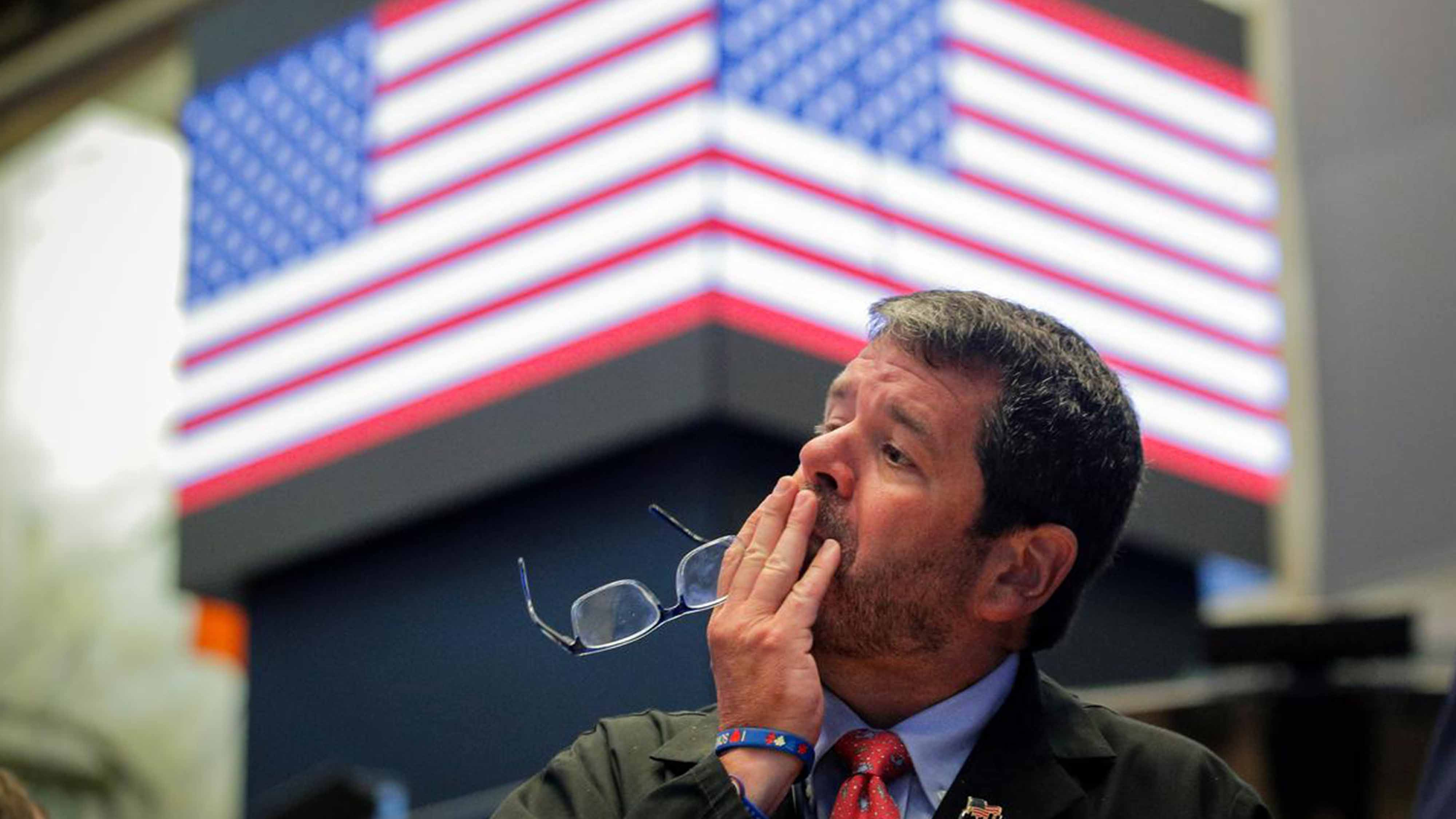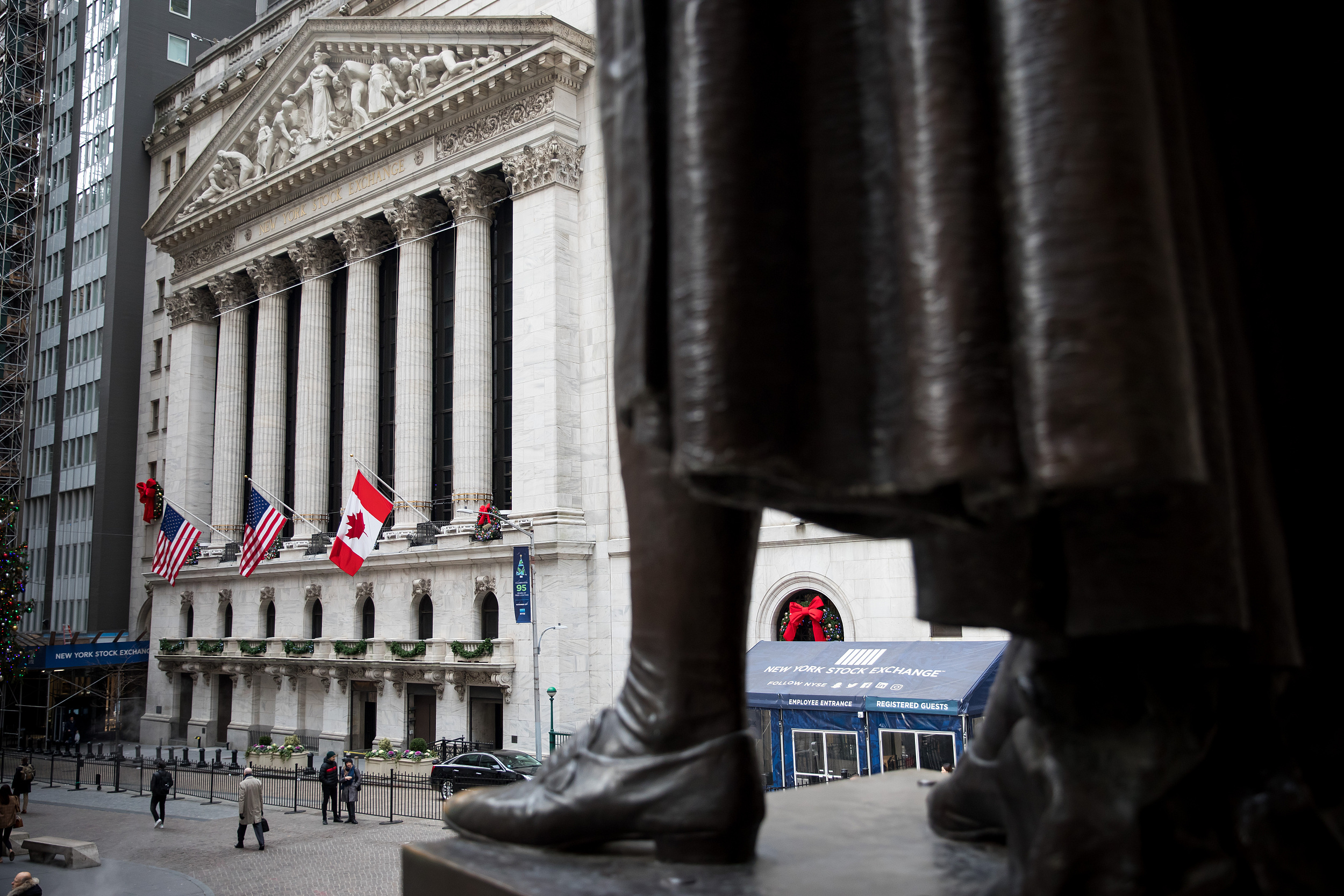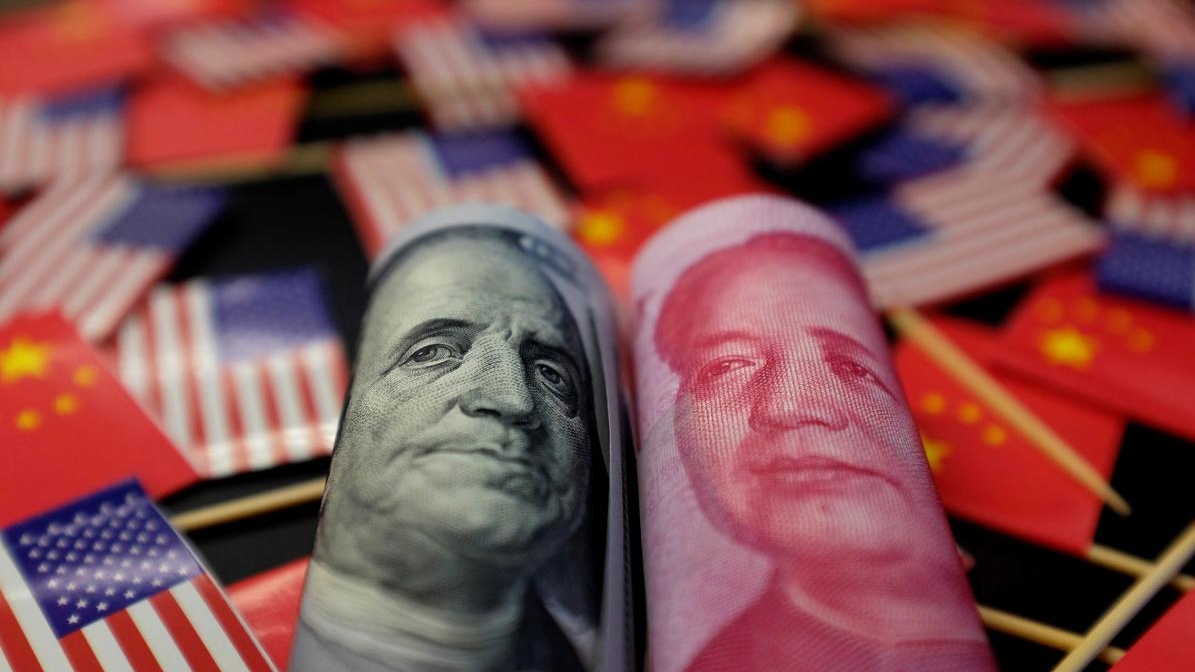

U.S. stocks plunged on Monday, as a fall in the yuan following U.S. President Donald Trump's vow to impose additional tariffs on Chinese goods sparked fears of further escalation of the U.S.-China trade war.
The Dow Jones Industrial Average decreased 767.27 points, or 2.90 percent, to 25,717.74. The Nasdaq Composite Index was down 278.03 points, or 3.47 percent, to 7,726.04.
The S&P 500 fell 87.31 points, or 2.98 percent, to 2,844.74, which notches its biggest one-day percentage decline since December 4. The S&P 500 has fallen for six consecutive sessions and is now about six percent below its record closing high on July 26.
All 11 primary S&P 500 sectors dropped, with technology companies. SPLRCT, which are heavily exposed to Chinese markets, leading the declines of 4.1 percent.
All Dow components companies traded in red territory with Apple erasing 5.2 percent, as analysts warned that the newly proposed tariffs may hurt demand for the iPhone.
The Cboe Volatility Index, widely considered to be the best fear gauge in the market, jumped by more than 38 percent.
U.S.-listed Chinese firms trade mostly lower
U.S.-listed Chinese companies traded mostly lower with all of the top 10 stocks by weight in the S&P U.S. Listed China 50 index ended the day on a downbeat note.
The shares of Ctrip.com International and Baidu fell by 8.07 percent and 7.06 percent, respectively, the top two decliners in the top 10 stocks of the index.
As of Monday, the S&P U.S. Listed China 50 index stood at 2,617.51, marking a 3.23-percent decrease for the month-to-date returns and a 14.24-percent gain for the year-to-date returns.

Traders at the New York Stock Exchange in New York, U.S. /VCG Photo
Market sees trade wars not 'easy to win'
"The fall in U.S. equities in particular is an interesting development, because it highlights how they are no longer benefiting from a view that trade wars are easy to win," Capital Economics said in a note on Monday.
The economic research company forecast that the S&P 500 will fall by another 15 percent or so between now and the end of this year, as investors' lofty expectations for earnings are dashed by continued sluggish growth in the United States and elsewhere, which won't be helped by escalating trade tensions. At the same time, the Federal Reserve will not loosen policy by as much as investors have hoped.
Investors rushed to traditional safe haven assets like treasuries and gold on Monday amid the uncertainty. The most active gold contract for December went up 1.3 percent on Monday afternoon.

The New York Stock Exchange (NYSE) in New York, U.S. /VCG Photo
Yuan fell to lowest in a decade amid trade tensions
On Monday, the yuan weakened past the seven-per-dollar level to its lowest in 11 years, but it remains strong and steady against a basket of currencies, the the People's Bank of China said in an earlier statement.
The slide was influenced by unilateralism, trade protectionist measures and the expectation of additional tariffs on Chinese goods. The bank said it was a reflection of normal fluctuations in the supply-demand relationship and the international currency market.
Read more: PBOC chief: China will not use yuan as tool to cope with trade disputes

Reuters Photo
Trump tweeted on Thursday that he would place an additional 10-percent tariff on the remaining 300 billion U.S. dollars' worth of Chinese imports starting September 1.
Several U.S. industry associations have voiced their opposition to the White House's plan to impose more tariffs, arguing that such action will not facilitate negotiations but only hurt Americans.
Read more: New tariffs on Chinese imports not to facilitate agreement: U.S.-China Business Council
Analysts have said that since the new tariff targets retail items, along with other consumer goods, the impact on the U.S. economy will be more direct.
Read more: Trump's trade policy to hurt U.S. exports, economy, innovation: experts
Read more: Experts say new tariffs on China to dent investment, consumer spending
What next?
China's National Development and Reform Commission and the Ministry of Commerce said on Monday it would temporarily not rule out the possibility of levying additional tariffs on imported U.S. farm produce with deals made after August 3, and related Chinese companies have halted purchases of U.S. farm produce.
Read more: China halts new purchase of U.S. farm products
(With input from Xinhua News Agency)

Copyright © 2018 CGTN. Beijing ICP prepared NO.16065310-3
Copyright © 2018 CGTN. Beijing ICP prepared NO.16065310-3